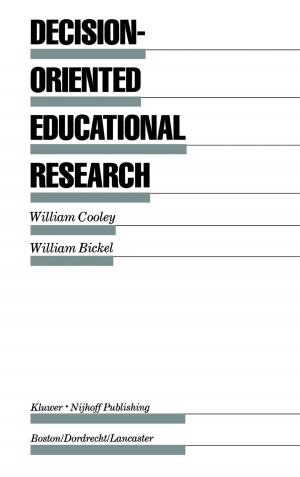| Author: | ISBN: | 9789401527491 | |
| Publisher: | Springer Netherlands | Publication: | December 6, 2012 |
| Imprint: | Springer | Language: | English |
| Author: | |
| ISBN: | 9789401527491 |
| Publisher: | Springer Netherlands |
| Publication: | December 6, 2012 |
| Imprint: | Springer |
| Language: | English |
Since the end of World War II Germany and Berlin, in particular, have pro vided the Soviet Union with convenient points on which to apply pressure upon the West. In September 1955 the Russians formally terminated the occupation status of their zone and recognized the "sovereignty" of the "German Democratic Republic", but in doing so they reserved to the Soviet Army control over the movement of British, French, and American military personnel and freight between West Berlin and the Federal German Re public which the Western Big Three had recognized as a sovereign state in 1954· In September 1958 the Soviet Union began exerting new pressure upon the West to alter the status of Berlin and Germany. Its initial moves sug gested the Russians were primarily interested in concluding a peace treaty with a divided Germany and making West Berlin a so-called "free city- unilaterally if need be - by the end of May 1959. However, intensive diplomatic maneuvering on both sides soon revealed the Russian position to be more flexible than originally indicated and one of its primary goals to be the calling of a summit conference which the Soviet Union had sought since 1956. Shortly before the expiration of N. S. Khrushchov's November 27, 1958, six-month "ultimatum," the Big Four had reached sufficient agreement to convene a Foreign Ministers' Conference. However, after three months of fruitless negotiations it produced only deadlock.
Since the end of World War II Germany and Berlin, in particular, have pro vided the Soviet Union with convenient points on which to apply pressure upon the West. In September 1955 the Russians formally terminated the occupation status of their zone and recognized the "sovereignty" of the "German Democratic Republic", but in doing so they reserved to the Soviet Army control over the movement of British, French, and American military personnel and freight between West Berlin and the Federal German Re public which the Western Big Three had recognized as a sovereign state in 1954· In September 1958 the Soviet Union began exerting new pressure upon the West to alter the status of Berlin and Germany. Its initial moves sug gested the Russians were primarily interested in concluding a peace treaty with a divided Germany and making West Berlin a so-called "free city- unilaterally if need be - by the end of May 1959. However, intensive diplomatic maneuvering on both sides soon revealed the Russian position to be more flexible than originally indicated and one of its primary goals to be the calling of a summit conference which the Soviet Union had sought since 1956. Shortly before the expiration of N. S. Khrushchov's November 27, 1958, six-month "ultimatum," the Big Four had reached sufficient agreement to convene a Foreign Ministers' Conference. However, after three months of fruitless negotiations it produced only deadlock.















